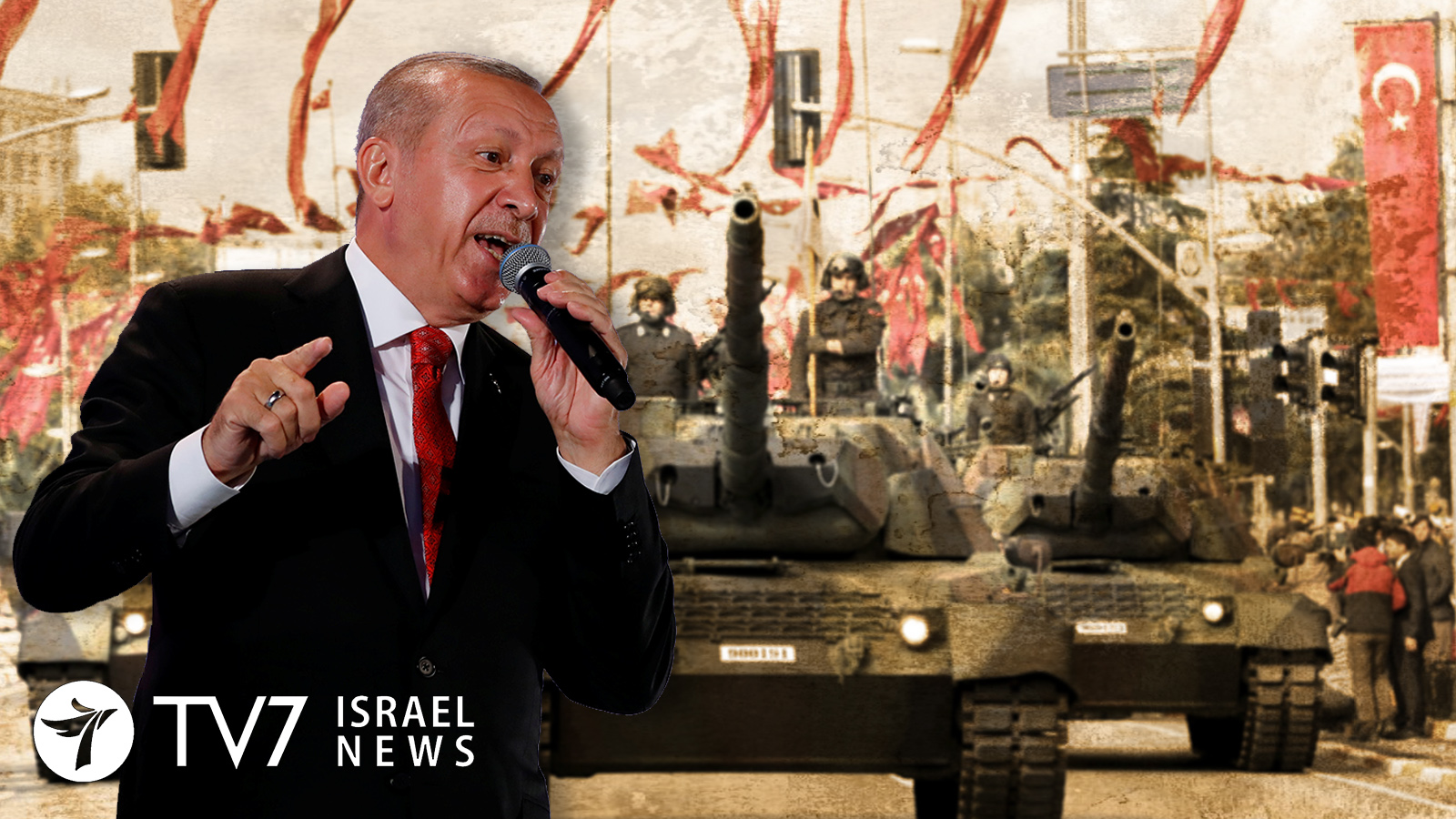President Recep Tayyip Erdogan has vowed once again to carry out a military operation in the Kurdish-controlled areas of northeastern Syria.
In a speech to Turkish Ambassadors in Ankara, Erdogan insisted that Turkey will pay a higher price if it does not do what is necessary in Syria, while further underscoring that the operation would start “very soon.” The Turkish President said: “Our primary issue is to drain the terror swamp in northern Syria. Turkey cannot feel safe as long as this cancer cell, that has been growing with heavy weaponry supplied by our allies, is destroyed. God forbid, if we do not act now, we will pay a higher price later. God willing, this process, that started with the Euphrates Shield and Olive Branch operations, would very soon be taken to a new stage.”
The Turkish leader also voiced his belief, in which U.S. President Donald Trump will not allow ties between the two countries to become captive to a dispute over Ankara’s purchase of Russia’s highly-sophisticated S-400 surface-to-air defense system – despite America’s decision to suspend Turkey’s participation in the F-35 project, and revoked Ankara’s order of the sophisticated fighter-jets. Erdogan nevertheless insisted that: “Turkey’s security means the security of NATO and the whole geography. There is no concrete evidence showing the S-400s will harm the F-35s or NATO. Nobody should deceive each other.” / “U.S. President (Donald) Trump’s statement at the G20 summit in Osaka that Turkey was treated unfairly is the confirmation of this fact at the highest level. I believe that Mr. Trump will keep this truthful stance on the matter of S-400 and will not allow Turkey-US relations to be held captive.”
The voiced hope of salvaging the deteriorating situation between Ankara and Washington came in light of a statement that was made last month by President Donald Trump, in which he said that he cannot blame Turkey for its determination to acquire the Russian-made S-400 systems, because of various circumstances that date back to U.S.-Turkish relations during the Obama Administration. According to the U.S. President: “We’re looking at the whole Turkey situation. You know they’ve ordered one hundred and twenty F-35 fighter jets — billions and billions of dollars — they paid some of it. The planes are being made they’re easily sold to other nations because they’re the greatest fighter jet in the world. And we have a backlog of orders but, it’s a tough situation. They’re getting the S400, but our statutes and everything else as you do that you just can’t order this equipment. And generally speaking, you can’t order equipment period. I don’t blame Turkey because there are a lot of circumstances, and a lot of a lot of lot of problems that occurred during the Obama administration. This dates back to the Obama administration — which was a disaster.”
Despite efforts to salvage the U.S.-Turkish relations, Erdogan’s adamant position invading the Kurdish-controlled territories in northeastern Syria is not well received by the United States.
As was reported on TV7 last night, U.S. Defense Secretary Mark Esper warned that any Turkish incursion into northeastern Syria would be unacceptable; noting that: “We’ve been heavily engaged with the Turks with regard to their security interests in northern Syria. Clearly we believe any unilateral action by them would be unacceptable and so what we’re trying to do now is work out with them an arrangement to address their concerns and I’m hopeful we’ll get there.”
Esper insisted that a unilateral Turkish incursion would upset mutual interests of Turkey and the United States, as well as the Syrian Democratic Forces that served as a key-component in the U.S. military’s battle against the Islamic State. “What we want to do is prevent unilateral incursions that would upset, again, these mutual interests that both the United States, Turkey and the SDF share with regard to northern Syria,” said the top American diplomat.
Despite Washington’s warnings, Ankara officials told TV7 that an operation is inevitable, unless the United States would follow-up on its pledge to create a buffer-zone east of the Euphrates river that will see all SDF forces – many of which are viewed by the Turks as terrorists – removed from the territory.
